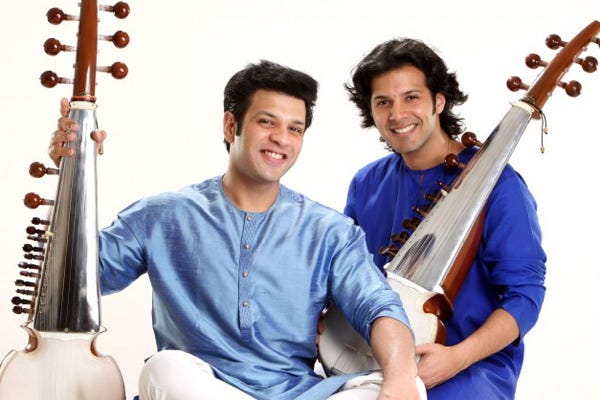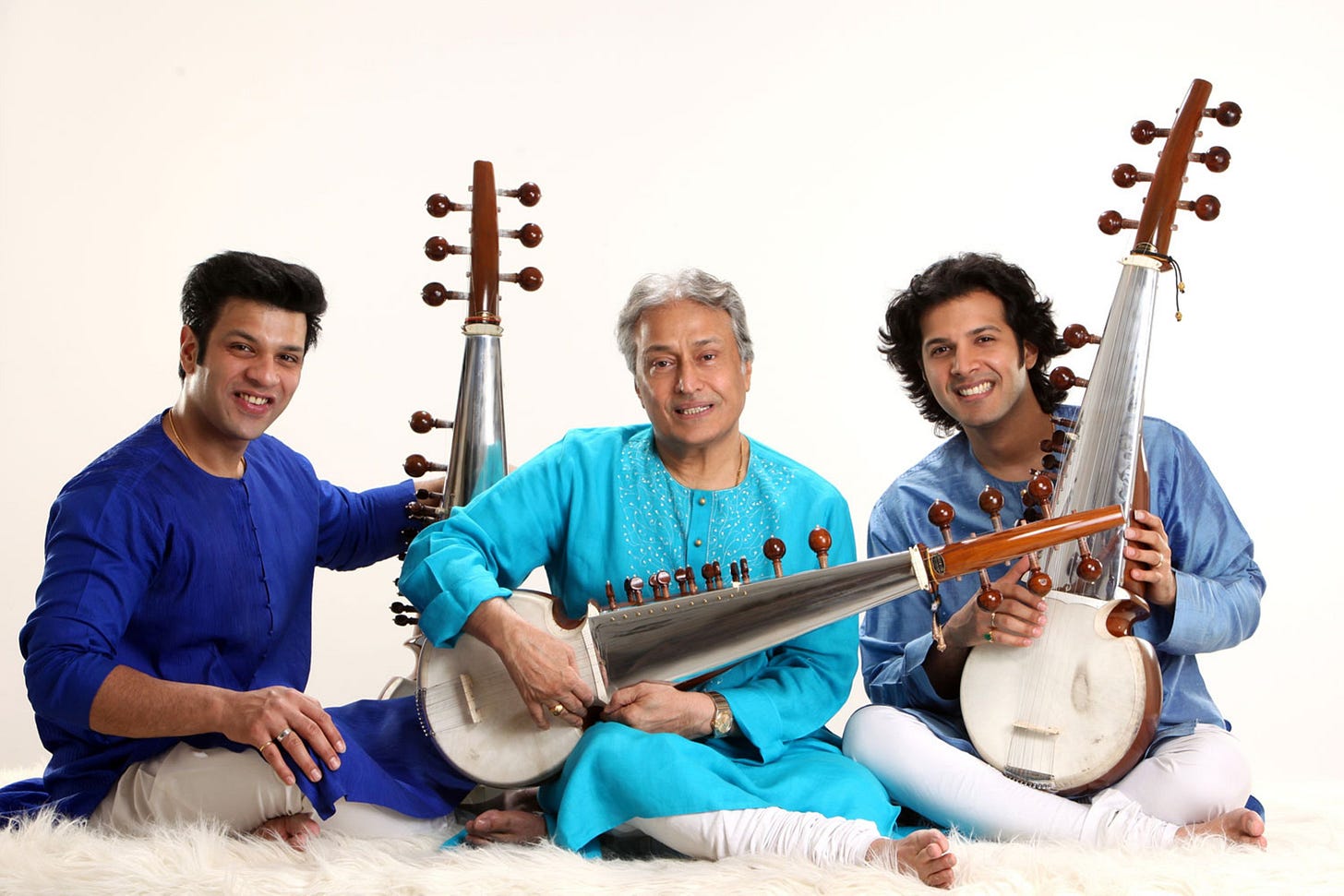My interview with Amaan and Ayaan Ali Bangash - Part I
This one quickly turned into the most fun interview I have ever taken

My cab met with a small accident. I was late. Mum had just come to Mumbai from Jammu. Murphy's law was acting in full swing. My life, in short, was doomed. I was to interview Amaan and Ayaan Ali Bangash and after a series of some rather wonderful events (ahem..sense the sarcasm), I finally reached the south Mumbai hotel where I was scheduled to meet them.
I was late and they weren't there any longer. I couldn't meet them! No, I'm kidding..they were just away for lunch and I had to wait for only one hour. Good thing I got my mum along who was enjoying the quintessential 'south Mumbai' feels while I was all jittery. Once the interview started though, I realised all that fear was for nothing. Amaan and Ayaan Ali Khan were gracious, considerate and wonderful artistes to interview. I know, I know, I should not be gushing, but they were nearly perfect.
Reema: I hope it's alright that if my mum sits along while I interview you.
Amaan: Of course, of course. Namashkar...
*The Bangash brothers exchange salutations with my mum, they talk about Jammu and Kashmir, Rajma and basically be their effortlessly charming self*
Reema: So, would it be too cliched to start with ‘Please tell us more about your upcoming album The Journey: Rabab To Sarod’?
Amaan: Haha..you know I just told Ayaan that this is going to be our 35th album together. We realised that we had never kept a count before this.
Ayaan: Our first album came out when he was 18 and I was 16!
Reema: Wow! Can I ask your age? (Just Kidding)
Amaan: Yeah, so no answer there to how old we are! (laughs) As for the album; it's called The Journey: Rabab To Sarod and honestly it's strange that we never thought about this concept earlier. Rabab is a very popular instrument of central Asia and the Middle East. There have been great Rabab players and Oud players all over the world, especially in Central India, Middle East, Afghanistan and Kashmir. Our forefathers, who belonged to Afghanistan, settled down in India also played Rabab about 300 years ago. Their forefathers came from Afghanistan and settled in Madhya Pradesh, Reva and Gwalior. Sarod is an extension of Rabab. This album shows the beautiful journey about two instruments that today coexist in perfect harmony.
“Bollywood is like hot samosas and hot chai; the moment it goes cold, no body cares. It is a very dangerous industry.”
Reema: Whose brainchild was it to showcase this journey?
Amaan: We were in Delhi and just decided to go to the studio one day. The whole session there was so inspiring; one song led to 12 or 13 of them and the next thing we know, the album is there.
Ayaan: There is a lot of emphasis on folk music, that is the most natural form of music. From there it changes into light classical. It's got something for the lovers of light classical music. It conveys that music has no border. I guess the 12 notes are all that is required in the market.
Reema: Speaking of folk music, why do you think Coke Studio did not take off in India?
Amaan: Every country has its own fragrance of music. When India opened its Coke Studio, we started following the Pakistani Sufi trends. We even tried Bollywood...nothing worked. When we tried folk music, it, in fact, worked for us. So, as a country we should be aware of what we have and not ape other regions. We should play on our strength.
Reema: Since you mentioned Bollywood; did you two not want to explore that domain at all?
Amaan: Bollywood is like hot samosas and hot chai; the moment it goes cold, no body cares. It is a very dangerous industry. In our profession if you put in those five hours every day; if you are humble and patient, it will stand you in good stead. If arrogance comes in, then it's the death of a musician. It's a very scary industry..
Ayaan: We didn't get offers. (laughs) We have a lot of friends in the field, but we don't mix the two. It's like comparing cricket to what Vishwanath Anand is doing. The two fields are completely different.
Amaan: Yeah. Earlier it was uncool to say that you're going for a Hindi film. Also, a lot of people knew already that these brothers are of a 'purer form'.

Ayaan: Most of them (films) work in a stereotypical way and don't think beyond the 100 crore club. But if some project appeals to us, we would love to do it. Though the creative distance between Bollywood and classical music has increased now.




